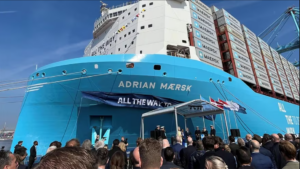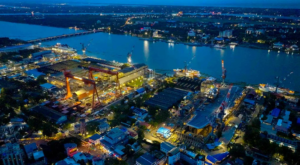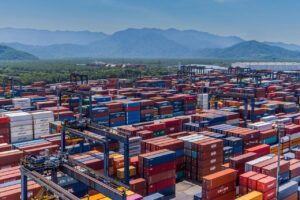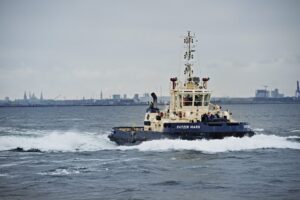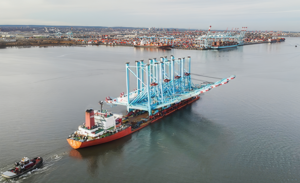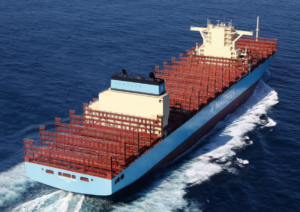Maersk: Q1 profitability slashed amid softened demand
Danish container shipping major Maersk has reported a massive drop in its ocean revenue for the first quarter of this year, plunging by $5.7 billion to $9.9 billion year-on-year amid lower freight rates and softened demand.
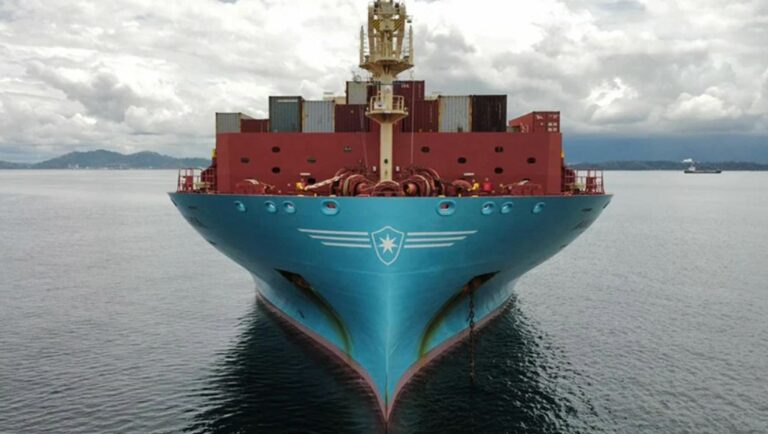
Last year saw a record performance of container shipping majors, impacted by continued exceptional market conditions and high freight rates. Liner heavyweights like Maersk reported best-ever results for the year. Nevertheless, market normalization in 2023 has been anticipated driven by lower demand, inflation, and geopolitical headwinds.
However, Maersk said that proactive cost containment measures have been successful and that the ocean contract negotiation season is proceeding in line with expectations.
Currently, 75% of the expected annual contract volume has been signed, Maersk said, with the average contract rate for 2023 continuing to trend toward spot rates.
Continued destocking and easing of congestion, especially with North American and European retailers, implied lower volumes across all segments. Maersk expects volumes to gradually pick up in the second half of the year.
A.P. Moller – Maersk’s revenue declined by 26% to $14.2bn from $19.3bn. EBITDA decreased to $4.0bn from $9.1bn, and EBIT to $2.3bn from $7.3bn.
Net profit for the quarter is $2.28 billion, down significantly from last year’s equivalent of $6.78 billion.
Overall, Maersk said that the report for the first quarter of 2023 was in line with expectations. The full-year guidance remains unchanged, with Q1 expected to be the strongest quarter of the year.
This means that the expectations for 2023 global GDP growth remain muted and that the global ocean container market is anticipated to grow in a range of -2.5% to +0.5%. As such, the group’s ocean businesses is expected to grow in line with the market.
In Q1 2023, Maersk recognised $374m of the previously communicated $450m impairment and restructuring charge for Maersk brands. As reported earlier, Maersk has inked a deal to divest Maersk Supply Service to A.P. Moller Holding with the closing expected to take place in Q2 2023.
Related Article
The company’s free cash flow was $ 4.2bn, against $ 6.0bn y-o-y, and the decline has been ascribed to decreased cash flow from operating activities and higher capital leases, slightly offset by higher financial income and lower capital expenditures.
“We delivered a solid financial performance in a challenging market with lower demand caused by a continued destocking. Visibility remains low for the remainder of the year and moving through this market normalisation, we remain focused on proactively managing costs. As we adjust to a radically changed business environment, we continue to support our customers in addressing their supply chain challenges,” Vincent Clerc, CEO of Maersk, said.
For the full year 2023, Maersk expects an underlying EBITDA of $ 8- 11 bn, an underlying EBIT of $2-5bn, and free cash flow (FCF) of at least $2bn. The CAPEX guidance for 2022-2023 of $ 9-10 bn is maintained. For 2023-2024 the expectation for accumulated CAPEX is $10-11bn, led by investment in the company’s integrator strategy, technology, and decarbonization.


